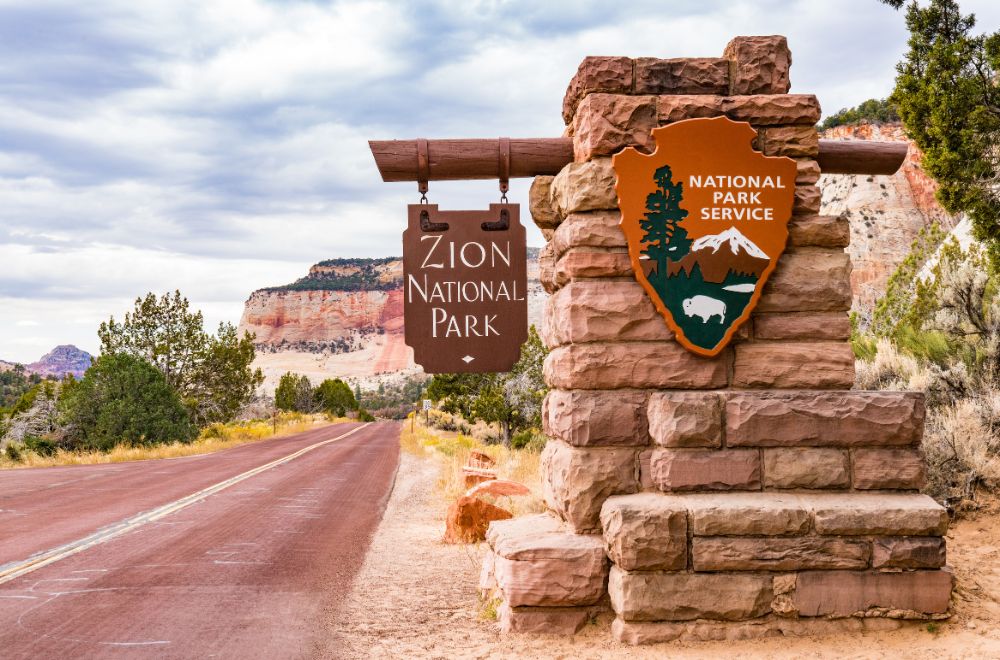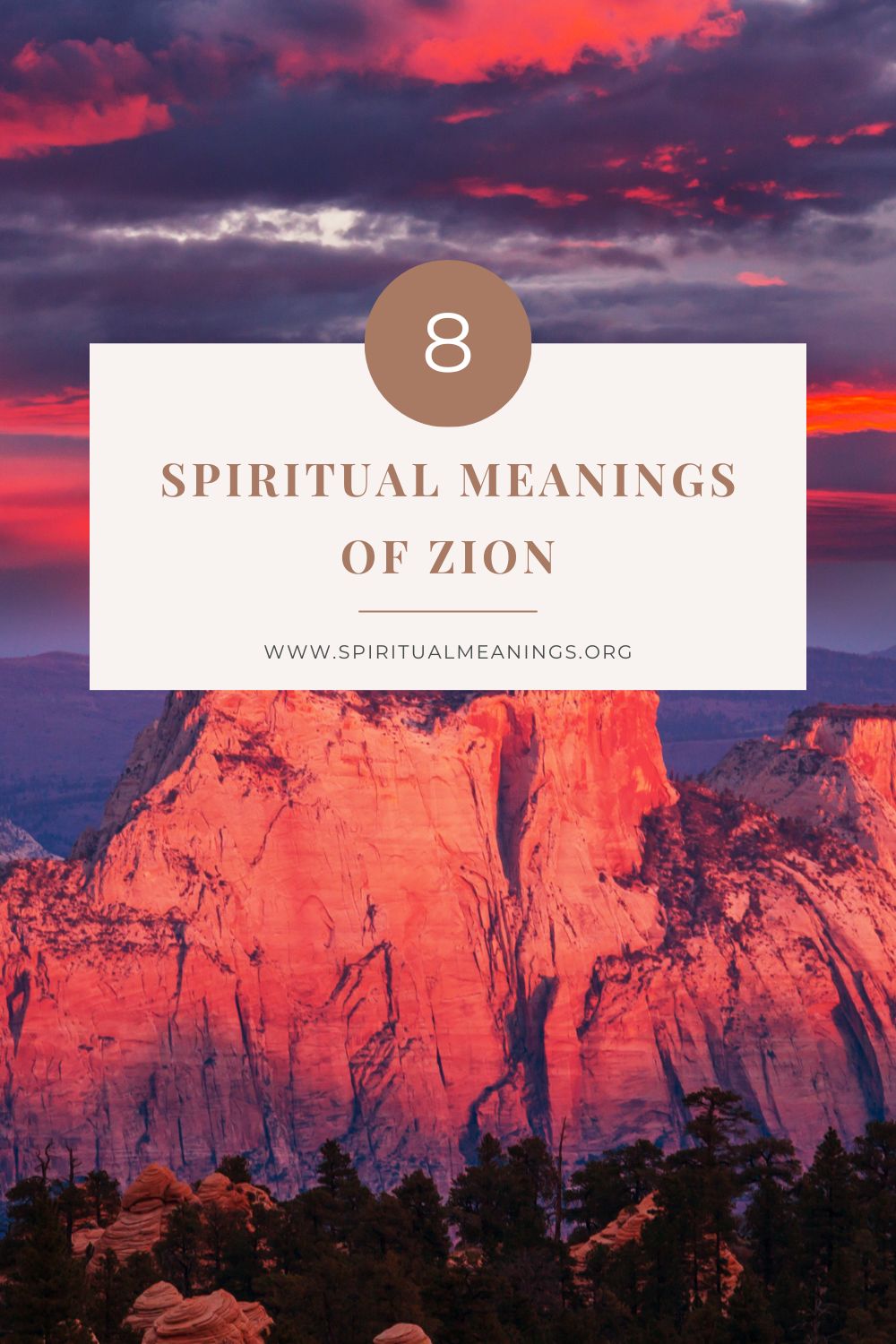Whether you watch the news, read a newspaper, see certain movies or listen to religious discourses, you may have come across the word Zion – and although many people may have a vague idea of what it signifies, you may be wondering about its precise meaning.
The word Zion can mean different things to different people, although it is ultimately related to concepts connected to Judaism and Christianity.
So to help you understand where it came from and how it is used, in this post, we answer the question, what is the spiritual meaning of Zion?
What is the Spiritual Meaning of Zion?
1. A synonym for Jerusalem, the Land of Israel and its people
The word Zion – or “Tsiyon” – appears in the Bible many times, especially in the Old Testament, and what it signifies is varied and nuanced.
However, one of the primary ways we can understand this word is as a synonym for Jerusalem and, by extension, Israel.
The word first appears in 2 Samuel 5:7 when we are told that David captured a fortress on a hill named Mount Zion, and doing so, he renamed the city the City of David.
The historical City of David is now accepted as constituting the original Bronze Age settlement that grew into the city of Jerusalem, and with time, the term Zion became a way of referring to the city as a whole and not just the hill where the fortress had been located.
Later, the scope of the term widened further and could also be used to include the whole of the biblical Land of Israel.
The Bible also contains mentions of the “Daughter of Israel”, which is considered to be a personification of the city of Jerusalem as well as its people.
2. A homeland for the Jewish people
In its meaning that encapsulates the Land of Israel, Zion can also be taken to mean a homeland for the Jewish people in a more metaphorical sense as well as in a purely physical sense.
In the Book of Genesis, God appears to Abraham and tells him of a Promised Land.
As a result of this, the Jewish people see themselves as having been chosen by God, and this concept of a Promised Land and of Jews as God’s chosen people remains central to the Jewish identity to this day.
In this context, the term Zion can be used to refer to the homeland promised to the Jewish people as an abstract concept – but it can also be taken to mean a real physical homeland in the form of the modern state of Israel.
3. “Zionism”
Closely related to this idea is “Zionism”, an expression coined by an Austrian named Nathan Birnbaum at the end of the 19th century. This term is used to refer to a political movement that began in 1897 pushing for a national home and then a state for the Jewish people.
This movement advocated for the establishment of a national homeland for the Jewish people in the historical and biblical Land of Israel, and this then came to fruition with the establishment of the state of Israel in 1948.
Zionism was partly a reaction to widespread antisemitism, particularly in Central and Eastern Europe, and following the establishment of the state of Israel, it has been concerned with preserving, defending and developing this state.
Zionism takes many forms, but one of its central tenets is the claim to the land of Palestine, a claim that has been and continues to be the cause of major conflict in the region.
4. A place set aside by God for His worship and devotion
In a wider sense, for Jews and Christians alike, Zion can be taken to mean simply a place set aside by God for His worship and devotion – or also, a place set aside or chosen for people to live by God’s will to honor and serve Him.
This is the sense in which it is used when it is chosen for place names in other parts of the world, including in the US – for example, Zion National Park and Zion Canyon in the US state of Utah.
This name was chosen by Mormon settlers who arrived in the area because the mountains there reminded them of natural temples of God and because they wished to create a new “Zion” or City of God there.
5. God’s presence
According to the Old Testament, Zion was the chosen dwelling place of God.
An example of this can be found in Psalm 132, where it says, “For the Lord has chosen Zion, he has desired it for his dwelling, saying, ‘This is my resting place forever and ever; here I will sit enthroned.’”
As a result of this, Zion can, by extension, refer simply to the presence of God.
6. Rastafari beliefs
According to Rastafari beliefs, Zion has a slightly different signification.
In these beliefs, Zion is seen as a kind of Utopian ideal and a place of peace and unity where believers will be free from the exploitations of the modern materialistic world.
Rather than placing Zion in modern Israel, Zion is seen as being located in Ethiopia, which Rastafari consider the birthplace of humankind.
Although the location is different – and the believers are not Jewish – there are many parallels with the Jewish understanding of Zion.
For example, Rastafari believe that Africans are God’s chosen people and that they will eventually be returned to the Promised Land, which is located in Ethiopia.
The movement also has echoes of the millennia-long exile of the Jewish people from their homeland – the Rastafari movement developed among the African diaspora in the Americas, specifically in Jamaica, where people had been transported as part of the slave trade.
This deportation and slavery is also reminiscent of the Jewish period of Babylonian captivity, something else that may resonate with Rastafari descendants of former slaves.
Ultimately, the ideal of many Rastafari is to return to the Promised Land of Zion in Ethiopia, much as the Jewish people sought to return to their homeland and establish a state there.
7. A safe homeland
The idea of Zion can also be taken to mean a safe homeland where one is free from persecution.
This is obviously true for the Jewish people who suffered persecution for much of the two millennia-long history of their exile as well as for the Rastafari descendants of former slaves.
This is part of the reason why the state of Israel is so important for the Jewish people, who in relatively recent times have suffered the horrors of the Holocaust as well as pogroms in Eastern Europe and Russia.
As a result, they see the existence of the state of Israel as a defense against ever-present existential threats, which means Israel represents the one safe haven in the world where they hope to live free from the fear of persecution, antisemitism and even genocide.
For Rastafari, the concept of Zion in Ethiopia can be seen as fulfilling a similar role, providing them with a Utopian homeland where they can live free from oppression according to their beliefs.
For non-Jewish people or non-Rastafari, the idea of Zion can be seen in a similar light, and even for spiritual but non-religious people, the extended idea of Zion as a safe haven where they can live freely and practice their beliefs sometimes exists.
Interestingly, in the movie The Matrix, the city of Zion incorporates several of these ideas.
Zion is the humans’ last city and the only place where they are safe from the machines, so it is seen as their new homeland, their safe haven and even their promised land.
This can be taken in a non-religious sense, but there are also clear religious overtones, with the city also representing the Zion of the Jewish and Christian faiths.
8. A Utopia
Finally, by extending the meaning of the word even further, it can also be taken to mean a kind of Utopia – much in the same way that the word “Utopia” itself is used.
The original Utopia was a fictional island created by Sir Thomas More in the early 16th century, and the word has come to mean an ideal society with highly advanced systems of economics, government and justice.
In the same way, the term Zion can sometimes be used to represent a safe place where the inhabitants can live freely, safe from persecution and where they are allowed to worship their God as they choose.
And again, this use is often encountered in popular culture, for example, as already mentioned, in the movies of The Matrix franchise.
A word with deep spiritual significance
As we’ve seen, the concept of Zion is fundamental to the Jewish sense of identity, and it is also an important idea in Christian beliefs, especially as related to the Old Testament.
It can be used to refer to Jerusalem, the Land of Israel or the modern state of Israel, and it can also be used more metaphorically or figuratively to refer to the Jewish Promised Land, the Rastafari Promised Land or simply a safe haven more generally, depending on the context.











